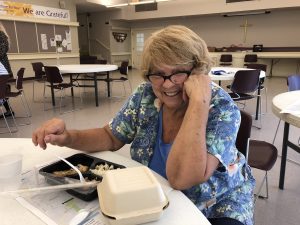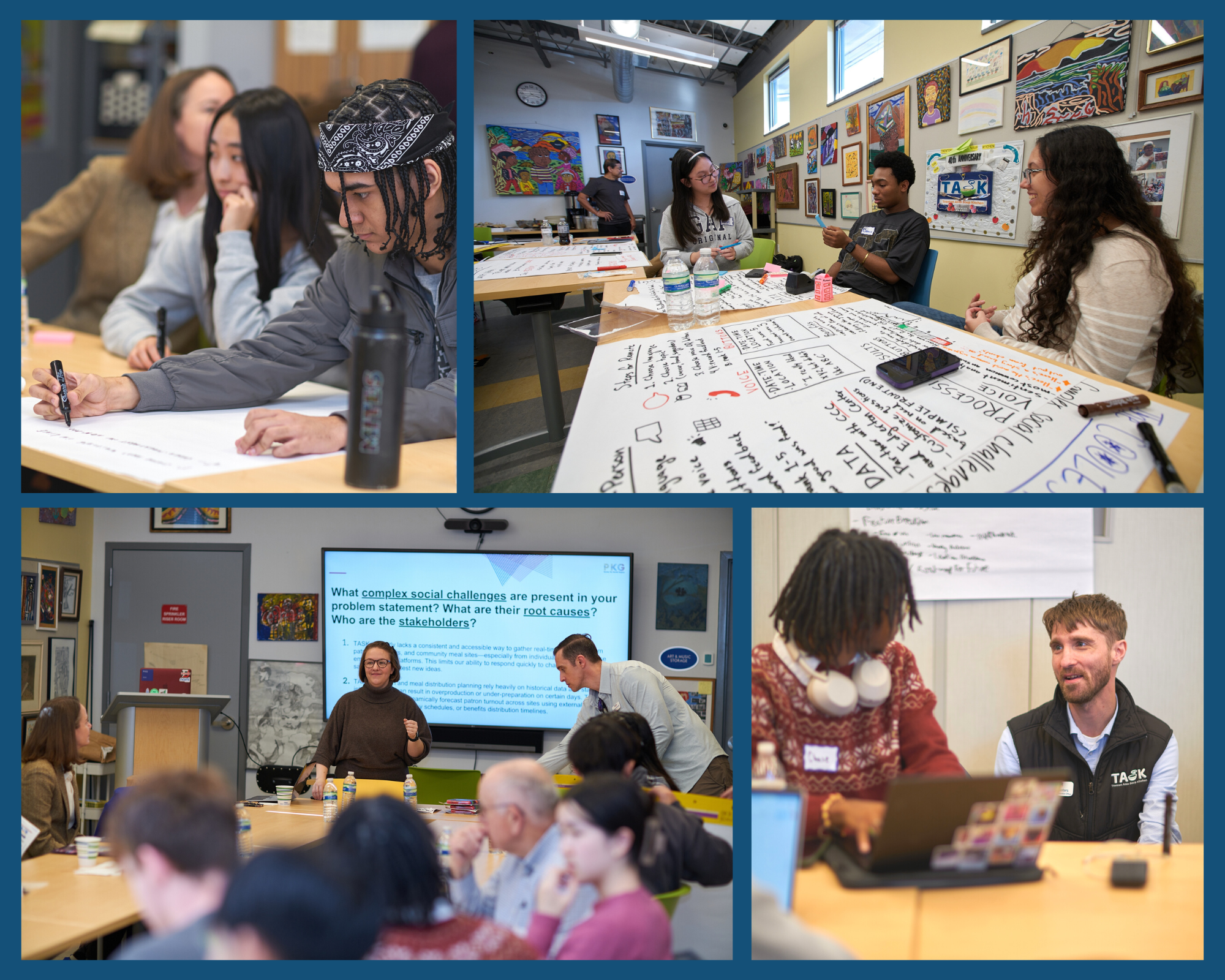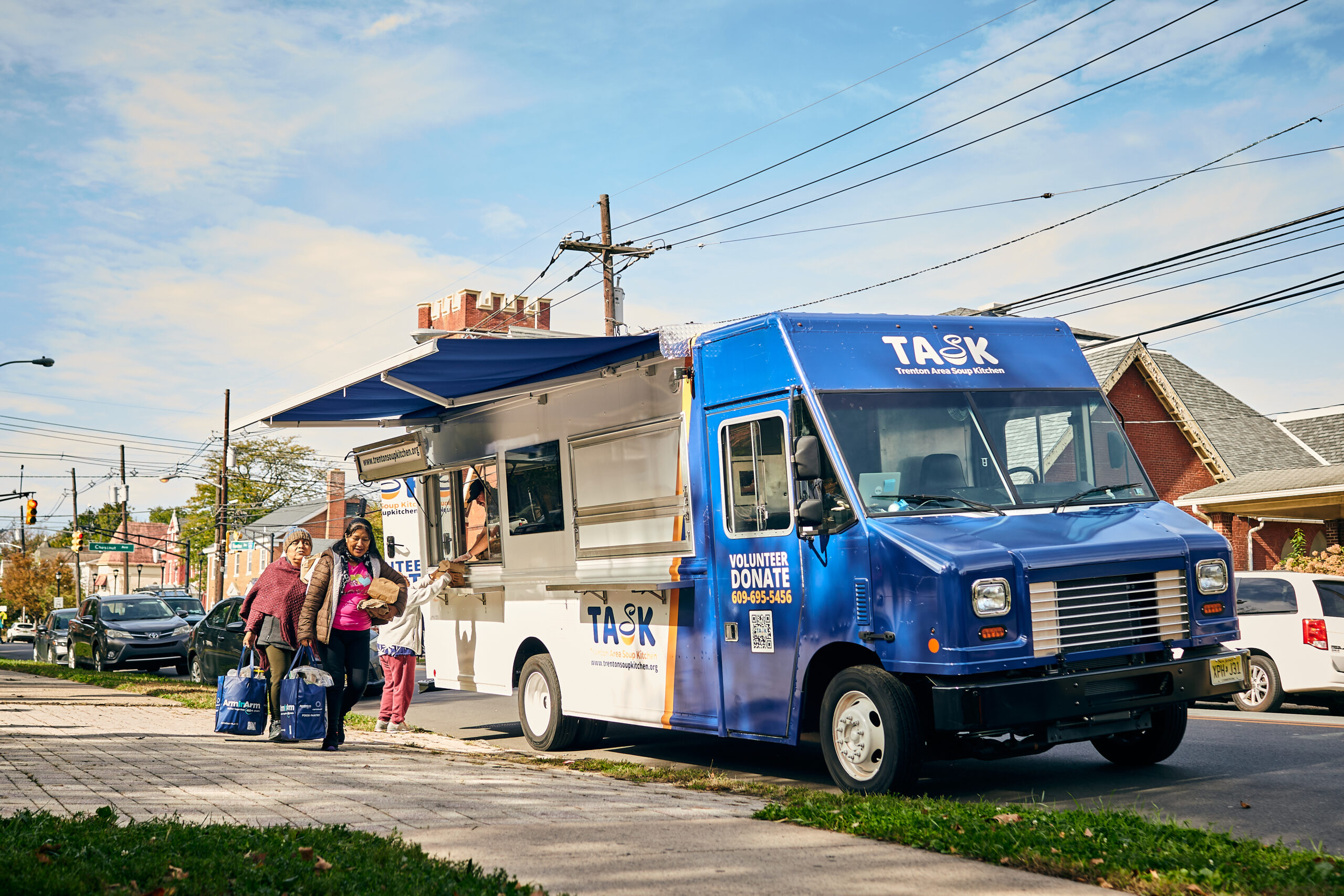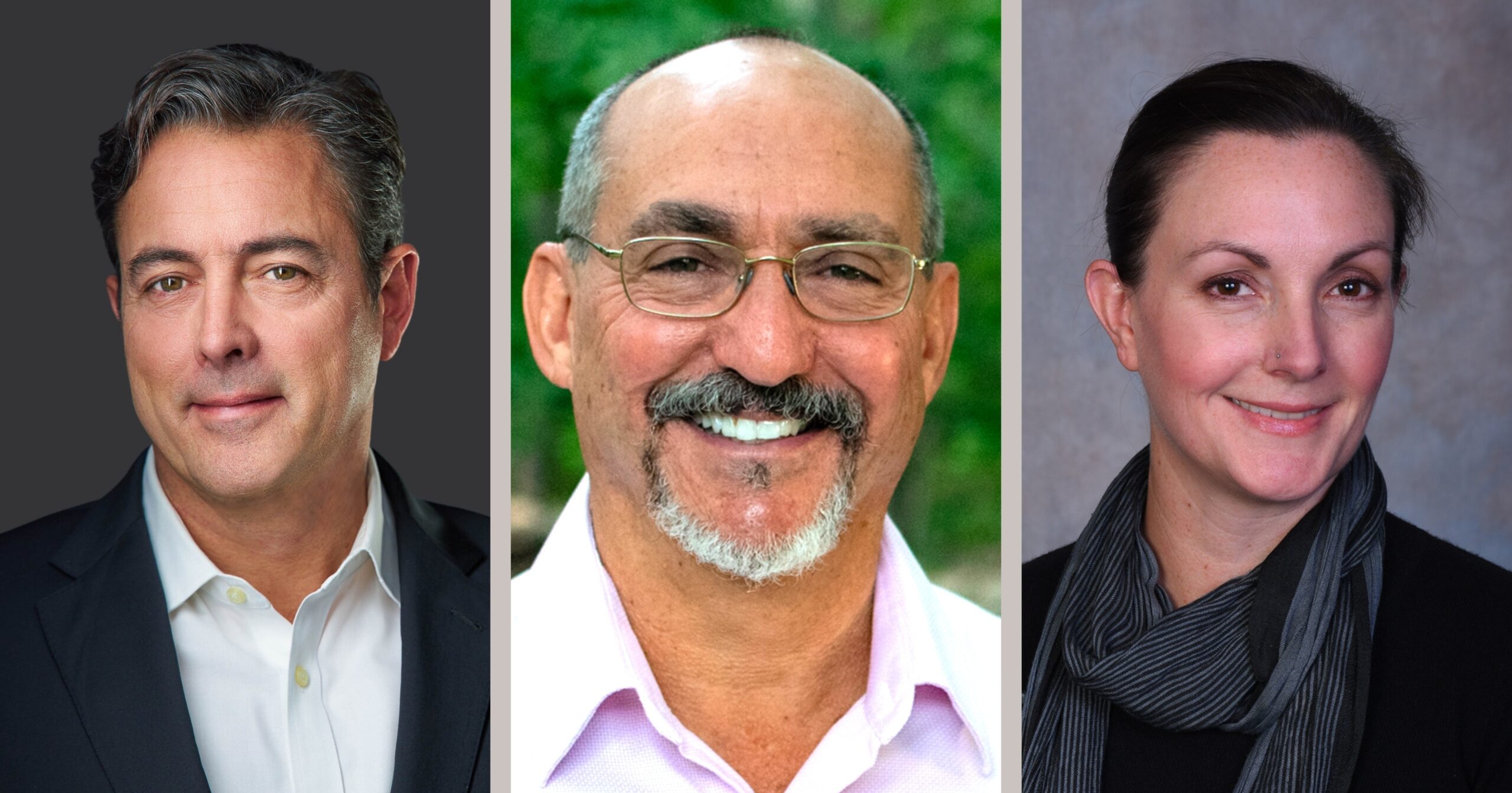News, Events & Stories
The Wisdom Behind TASK’s ‘No Questions Asked’ Policy
For many people, lining up for that first soup kitchen meal can be a difficult experience.
Dottie Laczny, a retired school cafeteria worker, recalled her feelings of distress five years ago when she first ventured in to get a hot meal from one of TASK’s community meal sites, Holy Apostles’ Episcopal Church, in Yardville, NJ.
“In the beginning, I was so embarrassed. I never needed help from anybody. I was always good with money and then everything went downhill. That’s why it was hard to walk in the door,” Dottie said. “But then I met everyone, and they were so welcoming. I felt like I had another family.”
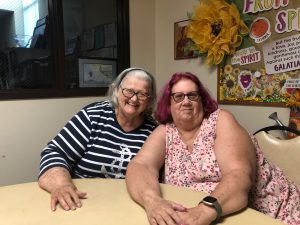
In 40 years, TASK has never turned away anyone who has asked for a meal.
Being vulnerable is an act of bravery that deserves support. TASK’s “no questions asked” policy is designed to make it easier for people like Dottie to get help.
“All are welcome,” says TASK Executive Director Joyce Campbell. “TASK never requires proof of income. We’ve never discriminated, judged or charged folks for food. It’s what makes TASK special.”
More than anything else, TASK’s “no questions asked” policy is a foundational principle that has guided operations for decades, helping to turn the soup kitchen into a refuge and place of hope for thousands of people like Dottie.
“I remember when the pandemic hit, quite a few people suddenly found themselves out of work, and they didn’t have a nest egg. They were embarrassed when they showed up. We said, ‘Don’t be embarrassed. Come and get food,’” says Mark Dahlinger, who leads TASK’s community meal site at the First Presbyterian Church of Hightstown.
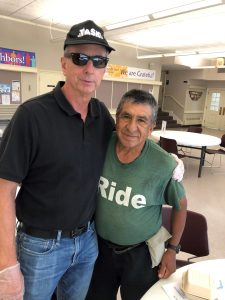
From day one, volunteers are schooled in TASK’s inclusive philosophy.
“I remind everyone that our job is to help people, not ask them why they are here,” Dahlinger explains. “The food is important, but being treated like a human being is even more important.”
“We believe people should be treated with respect… they are our neighbors.”
Many people take it for granted that soup kitchens serve meals with no strings attached. But that hasn’t always been the case.
In Victorian England, soup kitchen patrons were routinely prodded with intrusive questions and asked to “prove” their need for charity. Things got worse during the Great Potato Famine in 19th century Ireland, when starving children were fed soup on the condition they receive religious instruction at the same time. Even today, some soup kitchens charge a nominal fee for food or require patrons to sit through “informational” sessions during meal service.
TASK was founded as a secular institution in 1982 with the mission to feed those who are hungry in the Trenton area.
Our “no questions asked” policy has provided the ground-work for what has become a truly inclusive hunger relief organization. It is an important part of why TASK has earned the trust of thousands of our neighbors in need over the last 40 years.
“The most unique thing about TASK, and we hear it all the time from our patrons, is the common theme of dignity,” says Pam Kelly, TASK’s Board Chair.
“No matter where they came from, no matter what their background is, no matter what their struggles are—our patrons know that everyone here has their back and is pulling for them,” continues Kelly.
“Many of our patrons tell us that nowhere else have they been treated in such a caring way.”
Word-of-mouth recommendations have helped TASK expand from a soup-and-sandwich operation in the basement of the First United Methodist Church in Trenton to a restaurant-style, take-out or dine-in food hub that serves 8,000 meals a week to 34 community sites across Mercer County and into Eastern Pennsylvania.
Whether folks are dining in-person or getting a meal to-go, at our dining room or a community meal site, the “no questions asked” policy is a critical piece of continuity.
Marie Homick, a 75-year-old retired hairdresser who enjoys weekly in-person dining at the First Presbyterian Church of Hightstown, learned about TASK from a friend and now encourages her acquaintances to come for a meal.
“I was apprehensive at first, but my friend kept telling me everybody’s friendly—they welcome you,” Homick recalls. “Now I tell others to try it and see. I’ve got friends who are having a hard time paying bills, rent. I tell them anyone can come. [TASK makes] you feel at home. They make you feel good. You have a sense of community.”
